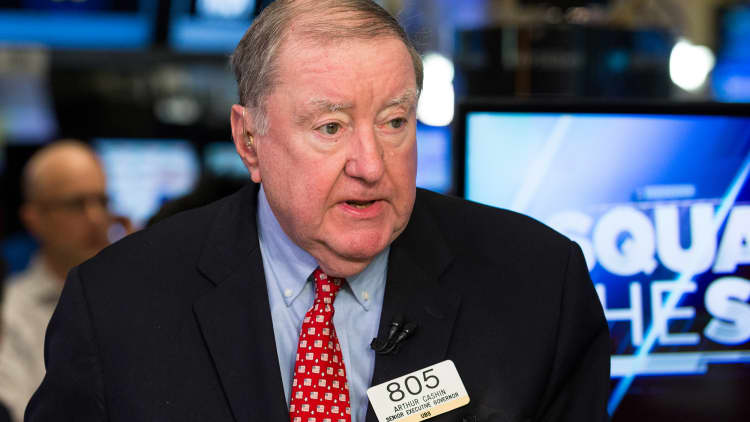
Wall Street's worst fears about a potentially failed effort to repeal Obamacare aren't likely to be realized, according to separate analyses that come amid an increasingly tense battle over the measure.
Financial markets have been volatile this week on worries that President Donald Trump and the Republican leadership won't be able to gather enough votes to enact the American Health Care Act, which would replace the Affordable Care Act.
Markets took a jolt Thursday afternoon on news that the vote scheduled for Thursday evening in the House of Representatives was postponed. Major averages had been higher earlier but closed around unchanged.
Failure to pass the act would cause several difficulties — parliamentary and fiscal issues could make it difficult to enact the tax reforms Trump campaigned on, while a loss also may make the new president look weak politically.
However, at least two Wall Street experts believe those concerns are overblown.
"Passage of the American Health Care Act vote is relevant for tax reform, but likely not in the way that markets and many observers may believe," Citigroup economist Dana Peterson said in a report for clients. "A failure of President Trump and House Republicans to deliver on this one of two stated objectives this year would not signal the death knell for fiscal stimulus, in our view."
Linkage between the health-care bill and tax reform comes on two levels: One is a parliamentary question about the reconciliation process, the other a related issue that the expected $337 billion in savings from the Obamacare repeal would pay for tax breaks.
Peterson, though, said it's not so important that the ACHA passes than that it gets voted on one way or the other so Congress can move on to the pressing tax issues.
"Republicans could fail to enact the current [or any] version of repeal and replacement of Obamacare, but nonetheless achieve some notable measure of changes in the current tax code this year that may stimulate the economy," she wrote.
Wall Street in general has somewhat scaled back its expectations for the tax cuts Trump promised. A recent fund managers survey from Bank of America Merrill Lynch showed that just 10 percent expect a tax bill to get through before the August congressional recess.
Goldman Sachs economist Alec Phillips said he sees the ultimate result of that package to be a corporate tax rate that gets cut to 25 percent — not the 15 percent that Trump has advocated.
But Phillips also believes the market is too worried about tax reform collapsing should the health-care effort fail.
"There is likely to be much broader support for tax cuts than there is for the health legislation," he said in a note. "Even if the health bill fails, we would continue to believe the odds of tax legislation passing by early 2018 are high."
As for overall market reaction, there could be some issues in the near term. Stocks saw their biggest drop of the year Tuesday on worries that the Trump agenda was in danger.
However, Peterson believes any volatility won't last.
"Indeed, we posit that a notable retreat in financial markets on a 'no-vote' might provide greater incentive for Congress to accomplish tax reforms and implement some degree of infrastructure spending before calendar-year end," she said. "If House Republicans and President Trump can rebound from the setback of an AHCA 'no-vote' by quickly focusing all resources on tax reform over the spring and summer months, then markets probably will be reinvigorated."


